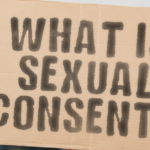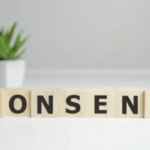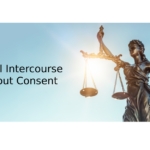There’s Nothing Sexier than Sexual Consent

There is nothing ‘sexier’ than consent’ – that’s the new message of a joint promotion by police in the Australian Capital Territory and the dating app Tinder.
ACT Police and Tinder have teamed up to run a joint campaign to inform Tinder users of recently updated sexual consent laws which bring ACT into line with border states New South Wales and Victoria, and also Tasmania.
Laws across all these states are very similar and stipulate that “affirmative” consent requires ongoing communication and ongoing agreement for the duration of any sexual activity.
Providing information and education about sexual consent laws
The ACT Legislative Assembly changed sexual consent laws last year with a new definition of consent, similar to the consent definitions in place in New South Wales which mean that sexual partners can no longer presume consent based on the fact that a partner has not indicated otherwise.
The laws in the ACT have also embedded a person’s right to choose not to engage in sexual activity.
Over the years Tinder has fought a fairly poor reputation for not having stringent monitoring practices in place on the app or for taking strict action against users who threaten and abuse others.
Here in Australia, it has been associated with a number of rape and sexual assault cases, along with murder and suicide. And yet it remains one of the biggest dating apps globally, with statistics showing it is responsible for facilitating about 70 billion matches globally.
More recently it has worked to change policies and procedures and has become much more active in ensuring user’s safety to the best of its ability, also including mutual consent features within the app that include double opt-in swiping.
Of course, new federal cyber safety legislation laws which came into effect in 2022, prescribes heavy fines and injunctions for those who don’t comply. The Online Safety Act gives dating apps and social media sites 24 hours to remove threatening or abusive content, and has given the Australian eSafety Commissioner sweeping powers to gather information about those who post abusive, abhorrent or threatening content – including the identities behind pseudonyms.
The Commission has the power to require all online service providers to regularly report on how they are meeting expectations under the eSafety Act.
Personal responsibility for gaining and giving consent to sexual activity
But users also need to take responsibility for their own safety, online and in real life.
The new promotion – which will run as an ad campaign on the Tinder app – is certainly a step in the right direction, even if only because it will make sure that people are familiar with current consent laws.
It is problematic that consent laws are not standard across the country. Queensland, South Australia, the Northern Territory and Western Australia have not yet legislated “affirmative” consent, although all are understood to be looking at reform, and are in the process of reviewing existing legislation or drafting new laws.
When these new laws are considered, it would make sense for definitions of consent to be fairly similar to those in other states, so there is no room for confusion or misunderstanding.
Younger people need better education too
Tinder is an app for adults, so there’s definitely an augment too, for social media sites and dating apps to run similar campaigns which target younger users.
The age of sexual consent (the legal age for sexual activity under the law) is 16 years across Australia, with the exception of Tasmania and South Australia where the age is 17 years, so its understandable that authorities and educators grapple with the “appropriate” age to be introducing this type of education, even though many young people take an interest in sex much earlier than the law prescribes them to legally be able to consent to, and engage in, sexual activity.
And, because sexual assault and child sexual abuse can be prosecuted years down the track – there is no prescribed statute of limitations – this means incident which occured when people were young, could end up having serious future consequences, if someone believes that consent was not fully granted, or other circumstances which could mean the sexual activity was unlawful.
In 2021 Australian woman Chantal Contos inspired thousands of young women to share stories of sexual assault that occurred when they were young teenagers.
The New South Wales education system is working to improve sexual education for young people, but it’s a complicated area.
It’s long been documented in psychology research that teenagers tend to engage in risky behaviour because they’re in a phase where they are experimenting with life… But they also don’t have full brain development, which can impact their ability to make sensible choices in the moment, irrespective of how well informed they may be.
While lawmakers are doing their best to ensure robust legislation which makes definitions more explicit younger teenagers definitely need to be learning about mutual respect, and responsible behaviour towards each other. As the eSafety Commissioner recently noted – cyberbullying amongst young people is rife online and the “tone of this youth-driven cyberbullying content is escalating to concerning levels.”
As more and more young people embrace apps and social media as a way of making new friends and conducting their social lives, it’s important to have these conversations sooner, rather than later.
Sexual consent in New South Wales
The definition of sexual consent in New South Wales is contained in
Section 61HI (1) of the Crimes Act 1900 (NSW) states that a person consents to sexual activity if he or she “freely and voluntarily agrees” to the activity.
It further explains that:
- Consent can be withdrawn by words or conduct at any time,
- Sexual activity that occurs after the withdrawal of consent is deemed to be without consent,
- Consent cannot be established if a person does not offer physical or verbal resistance,
- Consent to one form of sexual activity does not mean consent is given to another type of sexual activity, and
- Consent to sexual activity on one occasion does not amount to consent on another.
Section 61HJ(1) of the Act makes clear that sexual consent does not exist if a person, by providing a list of circumstances, which is not exhaustive, but includes:
- Does not say or do anything to communicate consent,
- Does not have the capacity to consent, for example that person has a cognitive impairment, or is so affected by alcohol or another drug/s as to be incapable of consenting, unconscious or asleep,
- Participates because of force, fear of force or harm to themselves, another person, animal or property , regardless of whether the feared force or conduct actually occurred, or was a single act or an ongoing pattern of conduct,
- Participates because of coercion, blackmail or intimidation regardless of when it occurred or whether it was a single act or an ongoing pattern of conduct,
- Participates because he or she, or another person, is unlawfully detained,
- Participates because he or she is overborne by the abuse of a relationship of authority, trust or dependence,
- Participates because of a mistaken belief about the nature or purpose of the sexual activity, including whether it is for health, hygienic or cosmetic purposes,
- Participates because of a mistaken belief about the identity of the other person or that they are married, and
- Participates because of a fraudulent inducement, which is not a misrepresentation about the other person’s income, wealth or feelings.
The age of sexual consent in New South Wales is 16 years, which means a person who is below that age cannot consent to sexual activity.
The age increases the 18 years where the person is under the ‘special care’ another; for instance, a teacher and student, a coach or other instructor and their pupil or a step-parent or guardian and their step child or person under guardianship.







